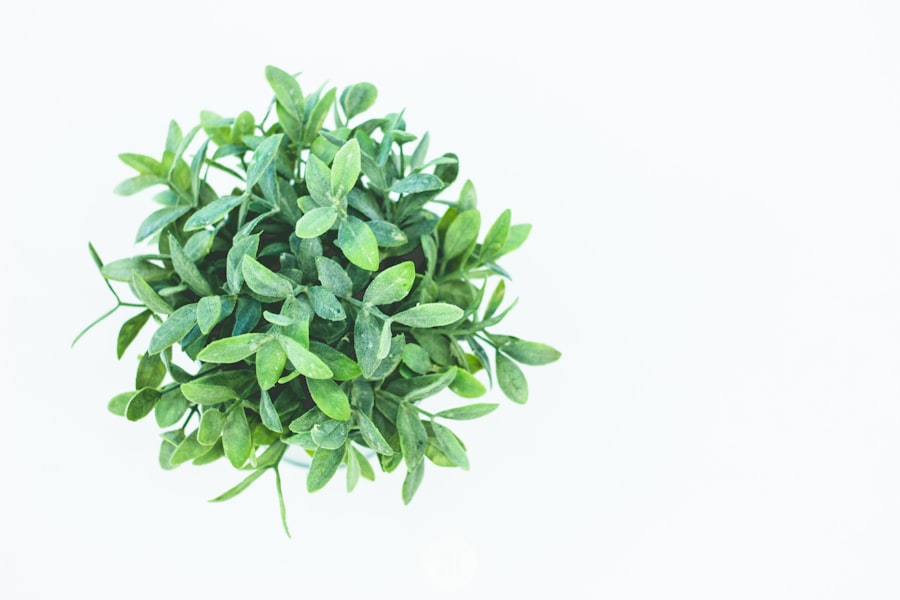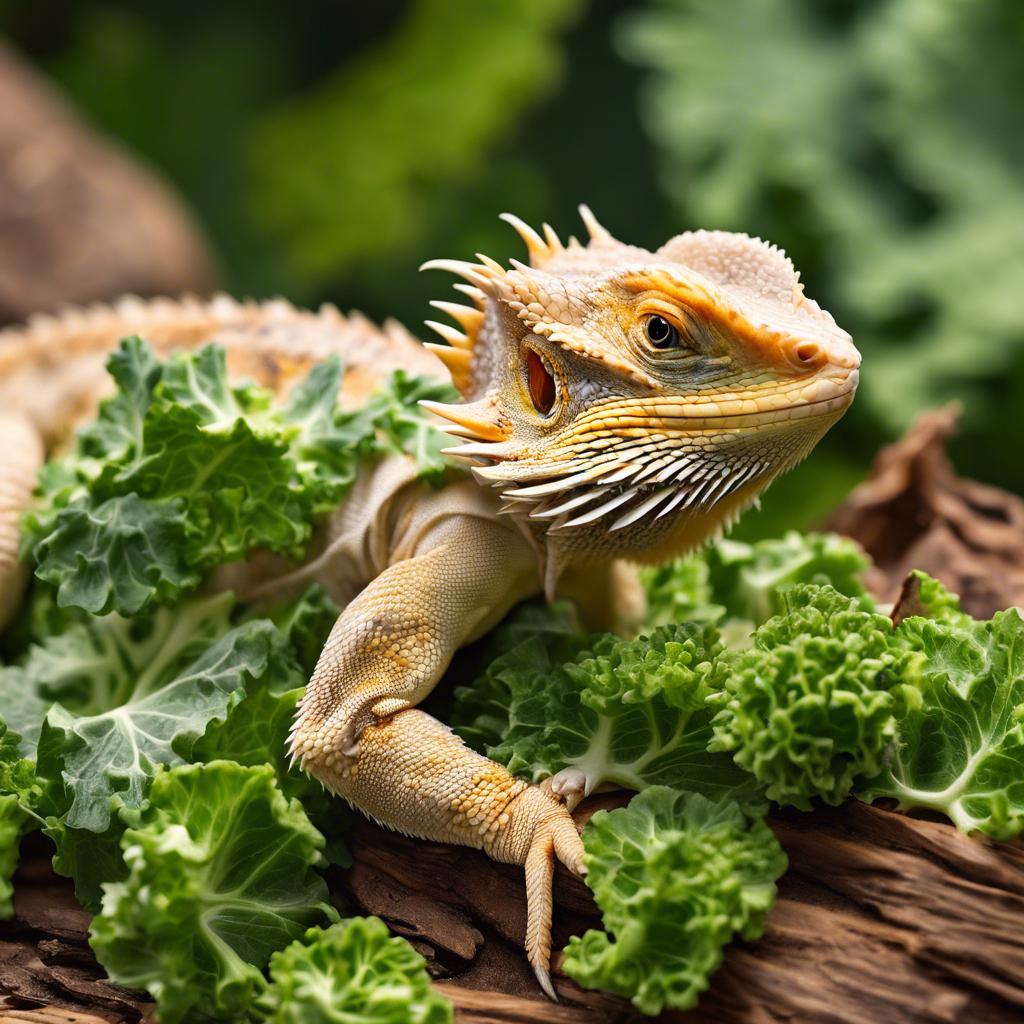Bearded dragons are a popular choice for reptile enthusiasts as pets. These fascinating creatures are native to Australia and are known for their unique appearance, which includes a spiky beard and a flattened body. Bearded dragons are omnivorous, meaning they eat both plants and animals. However, it is important to provide them with a balanced diet to ensure their overall health and well-being.
Key Takeaways
- Bearded dragons are a type of lizard that eat a variety of vegetables and insects.
- Broccoli leaves are a nutritious addition to a bearded dragon's diet, providing vitamins and minerals.
- To prepare broccoli leaves for bearded dragons, wash them thoroughly and chop them into small pieces.
- Bearded dragons should only eat broccoli leaves in moderation, as too much can cause health problems.
- Other vegetables that bearded dragons can eat include kale, collard greens, and carrots.
Nutritional Benefits of Broccoli Leaves for Bearded Dragons
Broccoli leaves are an excellent addition to a bearded dragon's diet due to their high nutritional value. These leafy greens are packed with essential vitamins and minerals that can contribute to the overall health of your pet. Broccoli leaves are particularly rich in vitamin A, which is crucial for maintaining healthy skin, eyesight, and immune function in bearded dragons. They also contain vitamin C, which helps boost the immune system and aids in the absorption of iron.
In addition to vitamins, broccoli leaves are a good source of minerals such as calcium and potassium. Calcium is essential for strong bones and teeth in bearded dragons, while potassium helps regulate blood pressure and maintain proper muscle function. Including broccoli leaves in your bearded dragon's diet can help ensure they receive these important nutrients.
Preparing Broccoli Leaves for Bearded Dragons
When feeding broccoli leaves to your bearded dragon, it is important to properly wash and prepare them to remove any pesticides or chemicals that may be present. Start by rinsing the leaves under cool running water to remove any dirt or debris. Then, soak them in a mixture of water and vinegar for about 10 minutes to help remove any potential pesticides.
After soaking, rinse the leaves again under running water to remove any remaining vinegar residue. It is also important to remove any tough stems or veins from the leaves before feeding them to your bearded dragon, as these can be difficult for them to digest. Once the leaves are properly prepared, you can offer them to your pet as part of their regular diet.
How Much Broccoli Leaves Should Bearded Dragons Eat?
While broccoli leaves are a nutritious addition to a bearded dragon's diet, it is important to feed them in moderation. Too much of any one food can lead to nutritional imbalances and health issues in reptiles. As a general guideline, broccoli leaves should make up about 10-20% of your bearded dragon's overall diet.
It is also important to consider the size and age of your bearded dragon when determining the appropriate amount of broccoli leaves to feed. Younger dragons may require smaller portions, while larger adults may need more. It is always best to consult with a veterinarian who specializes in reptile care to determine the specific dietary needs of your individual pet.
What Other Vegetables Can Bearded Dragons Eat?
In addition to broccoli leaves, there are many other vegetables that bearded dragons can safely consume. Some popular options include kale, collard greens, mustard greens, and dandelion greens. These leafy greens are all rich in vitamins and minerals that are beneficial for bearded dragons.
It is important to provide a variety of vegetables in your bearded dragon's diet to ensure they receive a wide range of nutrients. This can be achieved by rotating different vegetables throughout the week or offering a mixed salad of various greens. Just like with broccoli leaves, it is important to properly wash and prepare these vegetables before feeding them to your pet.
Can Broccoli Leaves Cause Health Problems for Bearded Dragons?

While broccoli leaves are generally safe for bearded dragons to consume, it is important to feed them in moderation. Feeding too much broccoli or any other cruciferous vegetable can potentially lead to health issues in reptiles. Cruciferous vegetables contain compounds called goitrogens, which can interfere with the thyroid function in bearded dragons if consumed in large quantities.
To avoid any potential health problems, it is recommended to offer broccoli leaves as part of a varied diet that includes other vegetables and protein sources. This will help ensure that your bearded dragon receives a balanced and nutritious diet without overloading on any one food.
Signs of Health Issues in Bearded Dragons
It is important for bearded dragon owners to be aware of the signs of health issues in their pets. Some common signs that may indicate a problem include loss of appetite, weight loss, lethargy, changes in behavior, diarrhea, or abnormal shedding. If you notice any of these symptoms in your bearded dragon, it is important to seek veterinary care as soon as possible.
Regular check-ups with a veterinarian who specializes in reptile care are also important for maintaining the health and well-being of your bearded dragon. These check-ups can help identify any potential health issues early on and ensure that your pet is receiving the proper care and nutrition they need.
How to Prevent Health Issues in Bearded Dragons
Preventing health issues in bearded dragons starts with providing them with a proper diet and nutrition. This includes offering a variety of vegetables, such as broccoli leaves, as well as protein sources like insects or commercially available reptile food. It is also important to provide a clean and spacious enclosure with appropriate temperature and lighting conditions.
Maintaining good hygiene practices, such as regularly cleaning the enclosure and providing fresh water, can also help prevent health issues in bearded dragons. Additionally, avoiding exposure to potential toxins or chemicals, such as pesticides or cleaning products, is crucial for their well-being.
Bearded Dragon Care: Proper Diet and Nutrition
Proper diet and nutrition play a vital role in the overall health and well-being of bearded dragons. Providing them with a balanced diet that includes a variety of vegetables, protein sources, and appropriate supplements is essential. Broccoli leaves can be a healthy addition to their diet, but it is important to feed them in moderation and alongside other vegetables.
In addition to a balanced diet, bearded dragons also require proper lighting and temperature conditions to thrive. They are ectothermic animals, meaning they rely on external heat sources to regulate their body temperature. Providing a basking spot with a heat lamp and a UVB light source is crucial for their health.
Broccoli Leaves as a Healthy Addition to a Bearded Dragon's Diet
In conclusion, broccoli leaves can be a nutritious addition to a bearded dragon's diet when fed in moderation. These leafy greens are rich in vitamins and minerals that contribute to the overall health and well-being of these fascinating reptiles. However, it is important to provide a balanced diet that includes a variety of vegetables and protein sources to ensure they receive all the nutrients they need.
Remember to properly wash and prepare broccoli leaves before feeding them to your bearded dragon, and always consult with a veterinarian who specializes in reptile care for specific dietary recommendations. By providing your bearded dragon with a proper diet and nutrition, you can help ensure they live a long and healthy life as your beloved pet.
If you're curious about what other foods are safe for your bearded dragon, you might want to check out this informative article on Reptile Wizard's blog. They discuss whether bearded dragons can eat broccoli leaves and provide valuable insights into their nutritional value and potential risks. To learn more about keeping your reptile friend healthy and happy, visit Reptile Wizard's blog at https://reptilewizard.com/blog/. While you're there, don't forget to explore their contact page https://reptilewizard.com/contact-us/ for any further inquiries or questions you may have. Additionally, if you're interested in other safe plants for bearded dragons, they also have an article on whether pothos are safe for these fascinating creatures at https://reptilewizard.com/reptile-keeping/are-pothos-safe-for-bearded-dragons/. Happy reading and happy reptile keeping!
FAQs
What are bearded dragons?
Bearded dragons are a type of lizard that are commonly kept as pets. They are native to Australia and are known for their distinctive appearance, which includes a spiky beard-like projection under their chin.
Can bearded dragons eat broccoli leaves?
Yes, bearded dragons can eat broccoli leaves. Broccoli leaves are a good source of nutrition for bearded dragons and can be included as part of a balanced diet.
What other foods can bearded dragons eat?
Bearded dragons can eat a variety of foods, including insects, vegetables, and fruits. Some good options include crickets, mealworms, kale, collard greens, and strawberries.
Are there any foods that bearded dragons should not eat?
Yes, there are some foods that bearded dragons should avoid. These include foods that are high in oxalates, such as spinach and beet greens, as well as foods that are high in phosphorus, such as rhubarb and beans.
How often should I feed my bearded dragon?
Bearded dragons should be fed once or twice a day, depending on their age and size. Younger dragons may need to be fed more frequently, while older dragons may only need to be fed once a day.
What should I do if my bearded dragon stops eating?
If your bearded dragon stops eating, it may be a sign of illness or stress. You should take your dragon to a veterinarian who specializes in reptiles to determine the cause and appropriate treatment.

